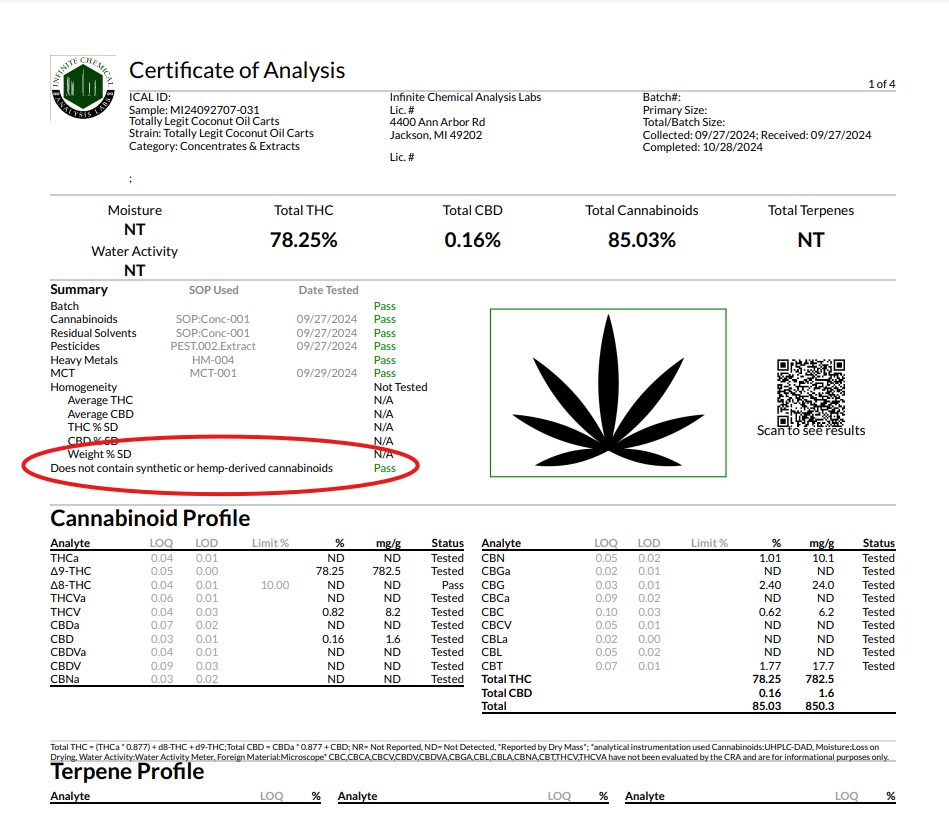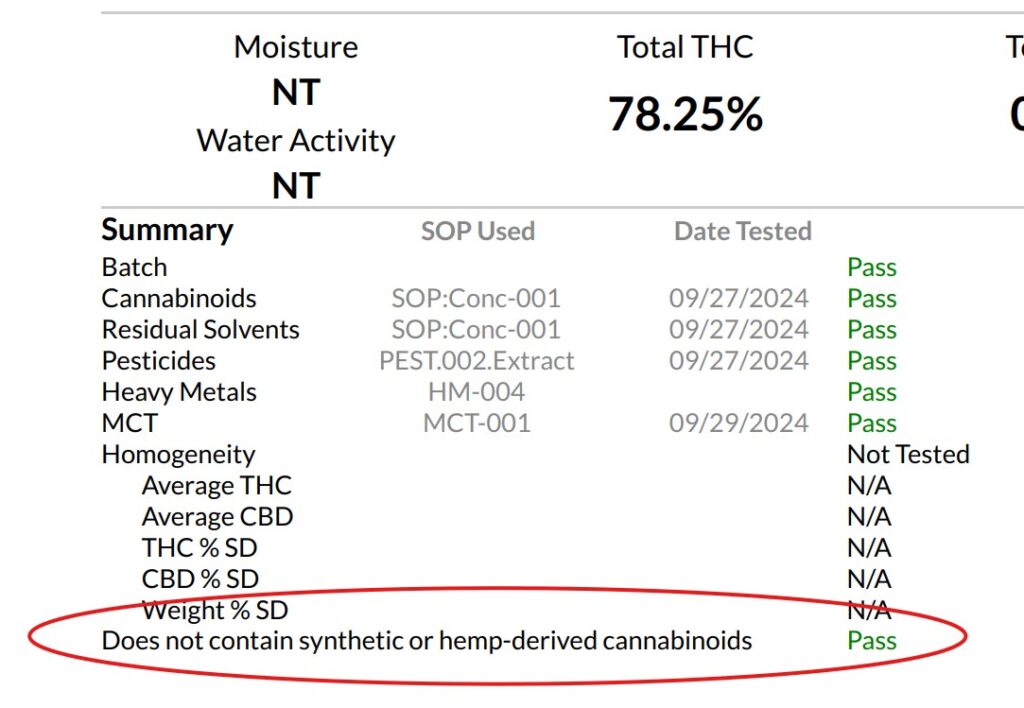Cannabis Consumer Education Resources
How to read a certificate of analysis (CoA)
The key to protecting yourself as a consumer is to be better educated. Learn how to read a certificate of analysis (CoA) and what to look for when reading a 3rd party cannabis testing report.

What is a Certificate of Analysis (CoA) and Why does it matter?
A Certificate of Analysis (COA) is a document that verifies the safety and quality of cannabis products. Every legal cannabis product must undergo testing from accredited laboratories, ensuring it is free from harmful contaminants and accurately labeled. These tests measure cannabinoid potency, screen for pesticides, and check for dangerous levels of heavy metals, among other safety factors.
Recently, a new test for synthetic products has been added, helping consumers avoid synthetic, counterfeit and potentially harmful products. Despite these tests being available, it is not required today by regulation or law. Rest assured, MiSCCo members are required to test their products and with the support of our group, properly issue recalls if a product does fail for synthetic oil.
By law, every cannabis retailer must keep copies of these COAs available for each product sold in their store. This way, consumers have full access to accurate test results, supporting informed and confident purchasing decisions.

Where to find synthetic testing
Today, Michigan Cannabis Regulations do not require testing for synthetic THC or hemp derived cannabinoids. Despite this, leading companies have started to mandate this testing on products to help ensure traceability and consumer transparency.
As a consumer, you’re allowed and encouraged to ask for copies of the certificate of analysis. In this instance, the upper left corner of the Certificate of Analysis shows it was tested for cannabinoids, residual solvents, pesticides, heavy metals, and MCT oil for their product. These tests are all required today.
Below those tests, there is the extra, non required test that is screening for acids used in the conversion process and the byproducts created from the chemical synthesis. We believe every product producer should be testing with this to ensure consumer safety. We believe you should be asking for this report when purchasing products like vape or edibles.
We encourage you, for your safety, to consider consuming products that have gone through additional testing rigor. Look for the passed testing for “Does not contain synthetic or hemp-derived cannabinoids.” Some other labs may refer to it as CV Oil Test – meaning conversion oil test.

